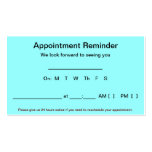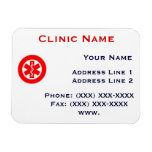Problems are almost a certainty as the switch from ICD-9 to ICD-10 becomes official on October 1. And while thorough training and appropriate planning can help make the transition a little easier, getting the facts straight may be even more important.
The thing is, there are so many myths about ICD-10 it’d put the ancient Greeks to shame. If your staff buys into any of these misperceptions, it will make the transition even more difficult.
So, let’s take some time to clear up some of the main sources of confusion.
Reimbursements Will Decline
The initial period after the switch may bring a slight decline in reimbursements as both coders and payers adjust to the new system. But any decline in reimbursements will only be temporary. Once your coders and payers gain their footing, ICD-10’s specificity may actually lead to higher reimbursements for your practice.ICD-10 and the thousands of new codes that come along with it allow providers to be far more detailed when coding, which will significantly reduce the risk of under-coding. Under the new system, it should be easier to get paid appropriately for the work you perform.
Clearinghouses Convert Codes from ICD-9 to ICD-10
During the transition from HIPAA Version 4010 to Version 5010, clearinghouses were able to help providers by translating claims submitted using 4010 to the new standard. Unfortunately, most clearinghouses won’t be able to help in the same way during ICD-10.The two coding languages are just fundamentally different. ICD-10 is much more specific. In fact, one ICD-9 code may have several corresponding ICD-10 codes. Therefore, converting one language to the other requires knowledge of the actual clinical encounter.
ICD-10 codes must be inputted by the provider or the vendor the provider has designated as their coder. The only way a clearinghouse can convert codes is if they also provide your coding services.
Unnecessarily Detailed Documentation is Required
You’ve probably already heard a few ICD-10 jokes poking fun at the coding set’s perceived excessive amount of specificity. Hurt at the opera (Y92253) anyone? But some have taken this to mean they must code to higher specificities, which is simply not true.Coding should still be based on medical record documentation. While there are many highly specific codes, there are still nonspecific codes available for when documentation does not support coding to an increased level of specificity.







No comments:
Post a Comment